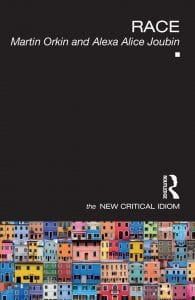
Cross-gender roles and performances permeate many of Shakespeare’s plays. Viola presents as pageboy Cesario for most of the dramatic action in Twelfth Night. Falstaff escapes Ford’s house as the Witch of Brainford in The Merry Wives of Windsor. Rosalind ventures into the woods as Ganymede in As You Like It. In that same comedy, Celia (as Aliena), Phoebe, and Audrey were also played by boy actors in Shakespeare’s time. In Cymbeline, British princess Imogen dresses as a male servant, Fidele, on their quest to find their husband among the Roman soldiers. Read the open-access Borrowers and Lenders special issue on contemporary transgender performance of Shakespeare. Continue reading

